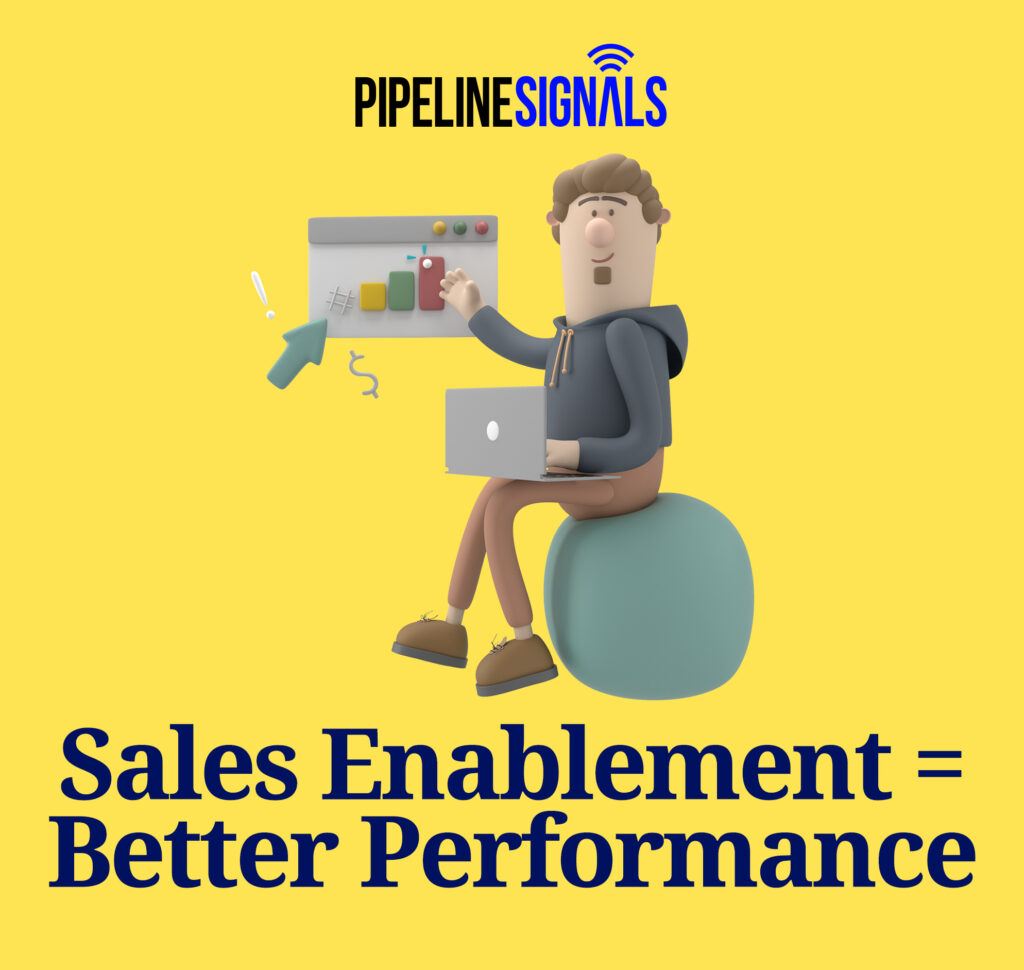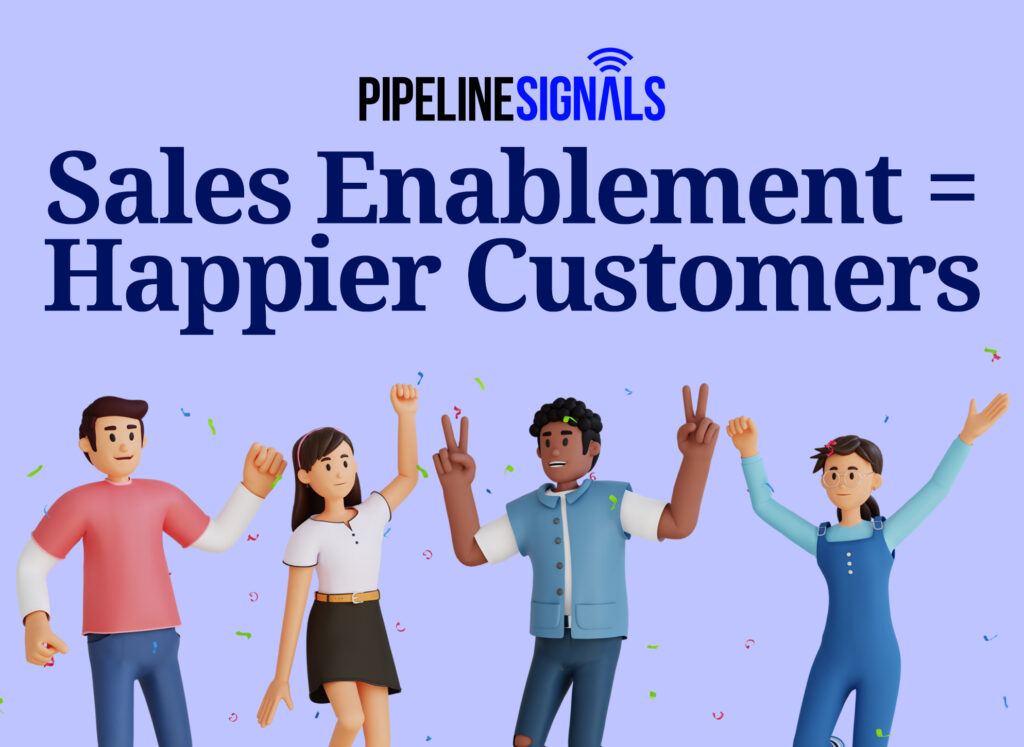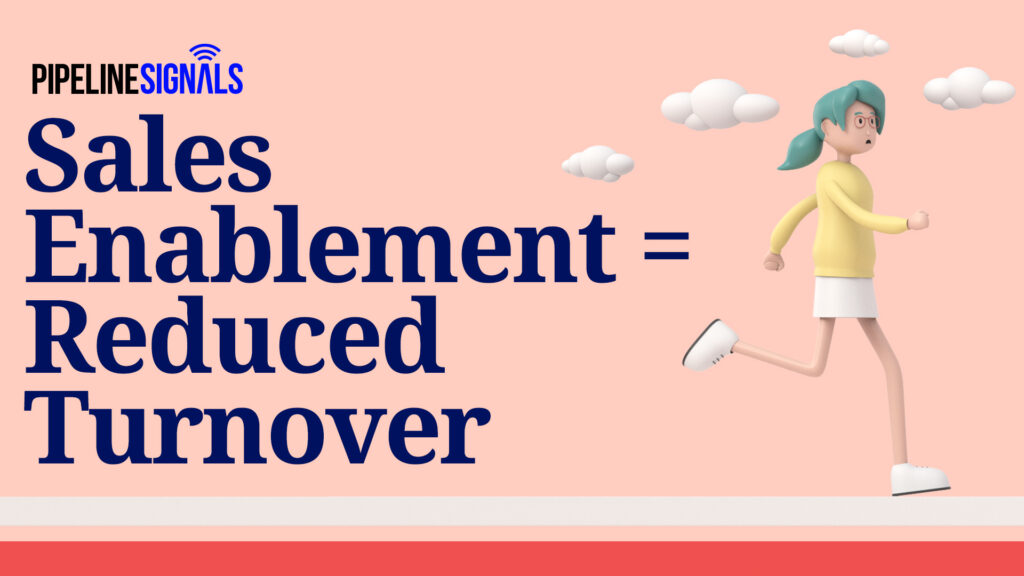Sales enablement is a process that provides your reps with the tools they need to be as effective as possible.
Why is this important?
Sales enablement has evolved, but it has continuously focused on how to optimize the sales process.
Compared to content marketing, which is best thought of as educating or selling through storytelling, sales enablement is all about implementing a concrete plan that takes an end goal and turns it into a reality.
As such, sales enablement works well with internal and external teams, ensuring that all sales team members are on the same page and working towards the same goal.
As many companies expand their business globally, often using B2B partnerships, businesses must find creative ways to establish and foster mutually beneficial relationships.
Sales reps and other individuals involved in the selling process are highly valuable and necessary for this undertaking. However, selling can be challenging, particularly for remote teams and businesses that use sophisticated technologies.
How Sales Enablement Can Benefit Your Sales Team
The benefits of sales enablement are clear: companies that invest in sales enablement see lower turnover rates, higher employee engagement, and increased sales. And it’s not just for the company’s sake—it’s also good for your team. When employees feel like they’re supported, they’re more likely to stick around!


Better Performance
If you give your sales team the tools and data that they need, they will be able to perform better in sales. Again, this is because they can focus on selling instead of researching.
You can help them do this by providing tools that allow them to find the information they need quickly, easily, and at their fingertips. This might include a database of contacts or records of previous sales calls so that they don’t have to dig around in different files to find what they need. It could also include anything from sales scripts to industry reports.
Whatever it is, ensure your reps have access to what they need to use their time most effectively—and get results!
It’s simple math: if a sales rep spends 10 hours per week looking for information, but only needs to spend 4 hours per week developing their own knowledge, then you’ve freed up 6 hours of their time! That’s 6 hours per week that can be devoted to selling instead of searching.


Happier Customers
If you’ve ever been on the receiving end of a sales pitch that seemed to promise the world and deliver nothing, you know how frustrating it can be. You might have even been tempted to write off the entire process as a waste of time—but don’t do that! The problem was likely not with your ability to discern what’s possible and what’s not but with the salesperson’s inability to deliver on their promises.
A good sales rep will never try to oversell their product or service; instead, they’ll present it in a way that allows customers to make informed decisions about which options are best for their needs. This means that the sales rep can offer accurate information about what’s possible (and what isn’t) before money changes hands.
Whether you’re a sales rep or in marketing, if you’re making a promise to a potential customer, you must have a plan for how you’ll deliver on that promise. If you make a false promise, it could hurt your credibility and cost you the sale. But if you can make real promises, customers will trust that they’ll get what they pay for—and maybe even more!
When sales rep has the tools and information they need to deliver on a promise, they can create an experience that is much easier for the customer. This way, the customer will be more likely to stay loyal to your brand and recommend it to others.


Reduced Turnover
Employee turnover is the highest cost of hiring and training new employees, so you must maximize the return on your investment in a new hire by ensuring they have all the tools they need to succeed. This is especially important for sales teams because sales enablement can help reduce turnover by helping make sure that new hires are properly trained and equipped to do their job.
New hires are an excellent investment for your company, but there’s no guarantee they’ll stay around.
If you’re not taking steps to make sure new hires are properly trained and equipped to do their job, you could be missing out on some serious earnings opportunities.
Let’s say you hire someone who has never worked in sales before. You spend $10,000 training them, and they leave after six months because they didn’t get what they needed. That’s $1,000 per month of missed opportunity!
But what if you’d put that same $10,000 toward sales enablement? You’d have taken steps to ensure that your employee had all the information and resources they needed at their fingertips. And then when they left, it wouldn’t matter—because you’re still getting the benefit of having a properly trained employee for those six months!
In addition to reducing turnover, sales enablement helps employees engage by assisting them to succeed at their jobs. Studies have shown that when employees feel like they’re learning something new at work every day (or even every week), their overall satisfaction with the company increases dramatically.


